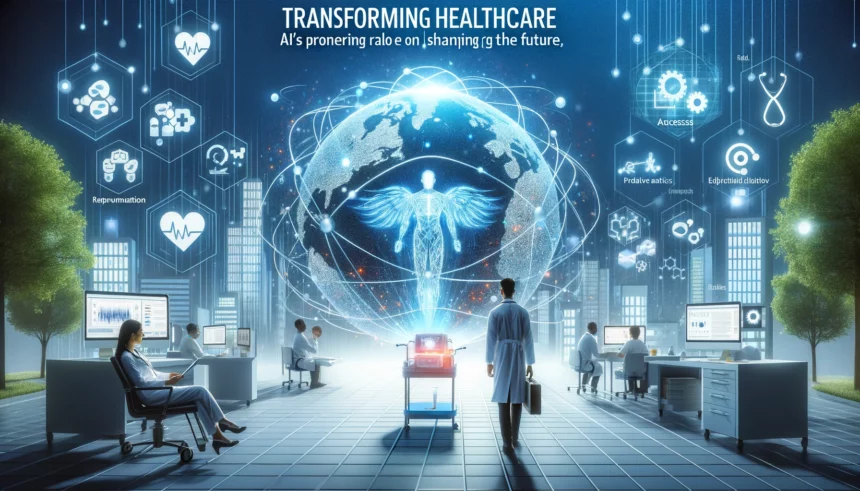Listen to the article now:
The landscape of global healthcare is on the brink of a monumental transformation, thanks to the advent of Artificial Intelligence (AI) and machine learning technologies. A new era is dawning—one where AI’s predictive capabilities are not just a matter of convenience but a necessity to combat pandemics and other healthcare challenges. The latest joint report by the European Union’s EIT Health underscores the pivotal role AI is set to play in enhancing healthcare outcomes, patient experiences, and access to medical services.
AI’s deployment in healthcare is heralded as a game-changer, particularly for developing nations where the scarcity of resources and medical infrastructure is a pressing concern. The technology promises to bridge these gaps, offering a beacon of hope for widespread access to healthcare services. By streamlining operations and aligning treatment needs with available resources, AI has the potential to dramatically reduce waiting times and extend medical outreach, bringing us closer to a world where quality healthcare is within everyone’s reach.
The report highlights a phased approach towards integrating AI within the healthcare sector. Initially focusing on automating routine, repetitive tasks, AI is set to relieve healthcare professionals from the burdens of administrative duties. This phase sees AI making its mark in radiology, pathology, and ophthalmology through advanced imaging techniques, thereby optimizing healthcare operations and fostering adoption.
As we progress, the focus shifts towards enhancing patient care outside hospital settings. The advent of remote monitoring systems, AI-powered alerting mechanisms, and virtual assistants is expected to empower patients, allowing them to take greater control of their health. This shift is anticipated to broaden the use of AI across various specialties such as oncology, cardiology, and neurology, marking a significant leap towards home-based care. The integration of AI into clinical workflows necessitates a harmonious blend of technological advancements and a cultural shift within organizations, underscoring the need for comprehensive training and engagement.
The ultimate goal is to embed AI seamlessly into clinical practice, supported by clinical trials and evidence-based approaches. This phase focuses on enhancing clinical decision-support tools, reflecting the healthcare sector’s evolution in adapting AI technologies. For AI to reach its full potential, the report stresses the importance of integrating broader datasets, establishing robust governance for data quality, and building trust among practitioners and patients in AI solutions.
In conclusion, AI in healthcare is not just an innovation; it’s a revolution poised to redefine how we perceive and receive medical care. From improving healthcare delivery efficiency to personalizing patient care, AI stands at the forefront of this transformative journey. As we navigate through the phases of AI integration, the collective efforts of governments, healthcare providers, and technology developers are crucial in unlocking the full spectrum of AI’s capabilities, ensuring a healthier future for all.
















